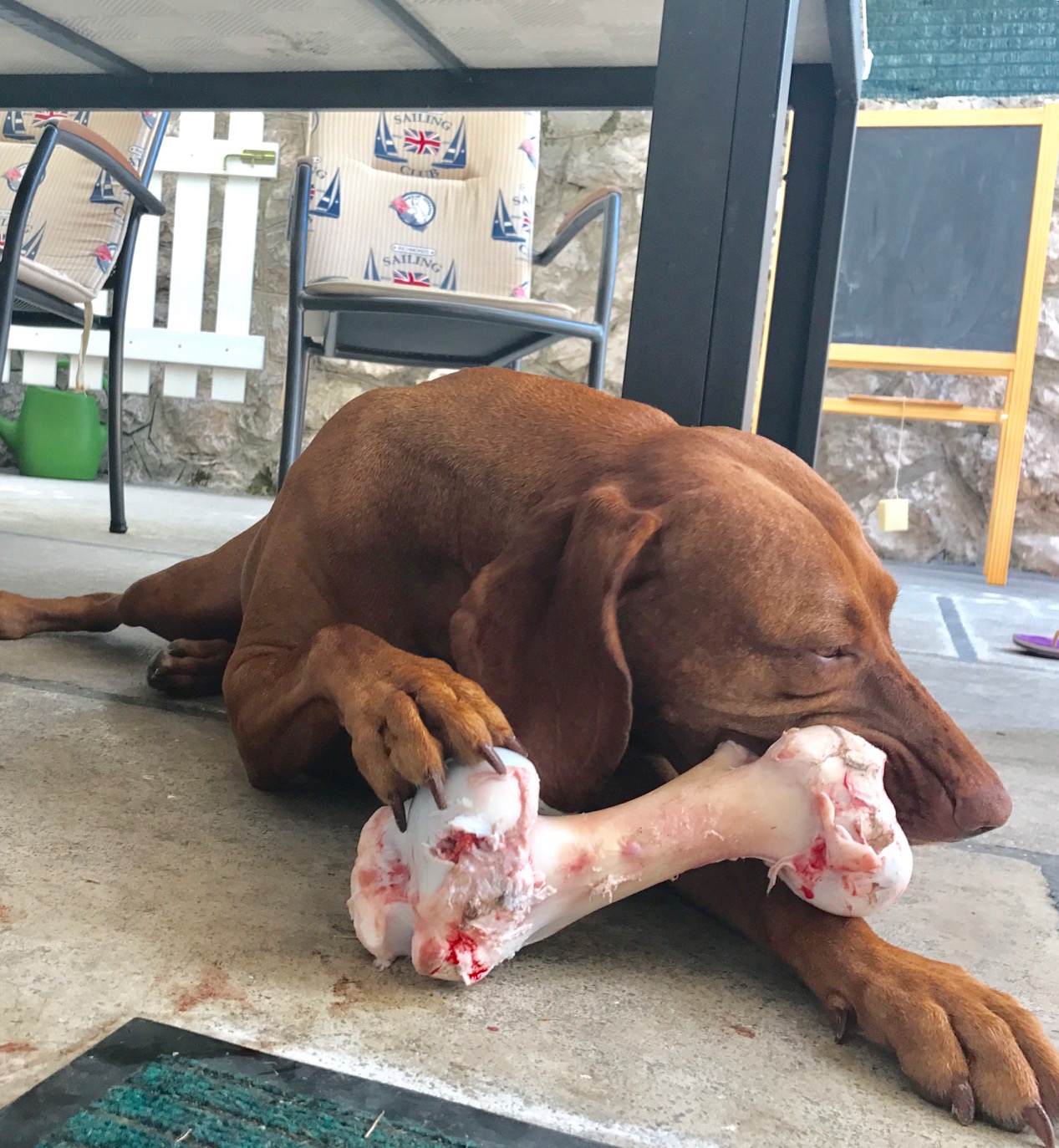Bones for Dogs and Why Are Bones Important In a Dog's Diet?
Bones for dogs and why are bones important in a dog's diet? What we need to know, and what rules should be followed when choosing bones for our dogs.

Bones for dogs and why are bones important in a dog's diet? What we need to know, and what rules should be followed when choosing bones for our dogs. There are many dog owners who fear giving bones to their dog. But if you stick to a few simple rules, your dog will thank you for the most fun teeth cleaning you can afford.
These are the rules to follow when choosing bones:
- The bone must be raw. Raw bone is more elastic and does not crack on sharp parts like cooked or roasted bone, which hardens due to heat treatment.
- The bone must be of appropriate size. Neither too big nor too small, but adapted to the size of your dog. It is even more dangerous if you give a large dog a bone that is too small for him and the dog decides to swallow such a bone without chewing.
- The quantity is also important. We recommend offering your dog a bone as a chew, not as a meal, no more than twice a week. It's best to start with a smaller amount of bones and watch what kind of stool the dog has.
- The first few times, and this goes for all chews, not just bones, watch your dog chew the bones. If you notice that he tends to swallow larger pieces, be sure to prevent him from doing so.
- We recommend rib tips, tail and neck bones, wings and legs of poultry, articulated parts of tubular bones
Why are bones important in a dog's diet?
Source of minerals
Bones are primarily a source of cations, which in their natural form are much more useful for the organism than synthetic calcium supplements. Calcium from raw bones is resorbed in the body up to 4 times better than from synthetic sources of calcium. Chewing bones cleans teeth. Bones act like a strong brush that removes plaque and tartar from the teeth. In this way, the occurrence of inflammation of the gums is prevented, as well as unpleasant breath from the mouth. All natural chewing gum. Raw bone is completely natural and does not contain numerous chemicals and various additives that are extremely common in the production of dog chews.
When choosing chews for dogs you should also pay attention to the composition of the chew, often such chews are made of ingredients with a lot of carbohydrates and odor and taste enhancers to be attractive. And there is little to say that they do not perform the function of cleaning the teeth, because the equivalent of that would be for people to brush their teeth in the manner of chewing gum. Mental stimulation. Just as motor exercises affect brain development in children, so chewing affects a dog's brain. In addition, a dog who has the opportunity to satisfy his desire to chew by chewing bones will not have the need to chew things that are not intended for that.


